Efrén Rama-Maneiro
Encoder-Decoder Model for Suffix Prediction in Predictive Monitoring
Nov 29, 2022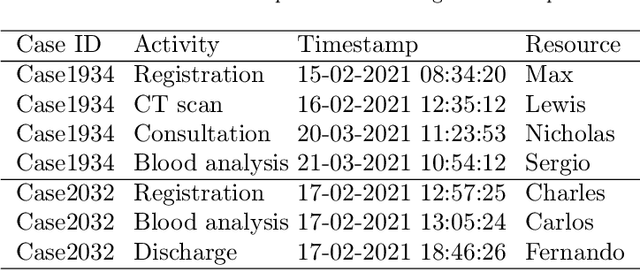
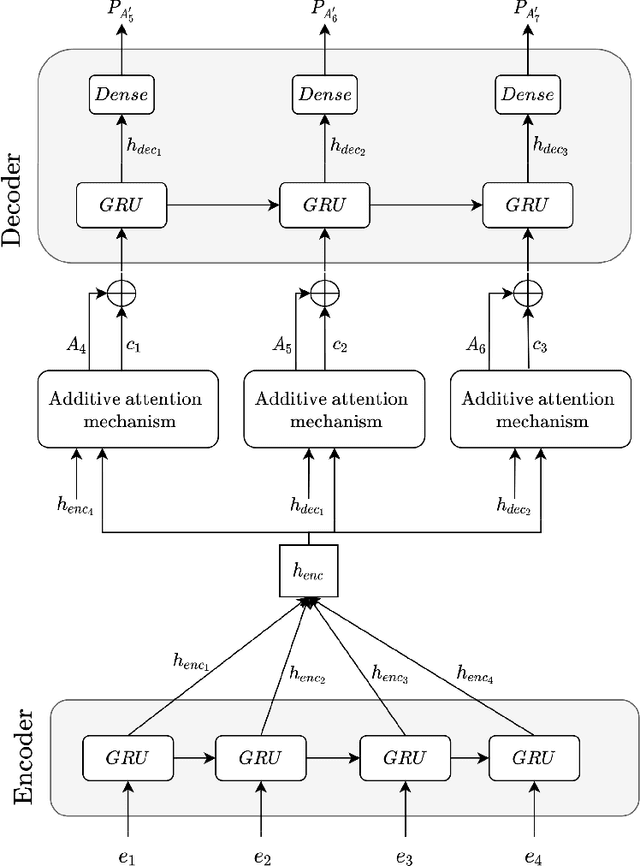
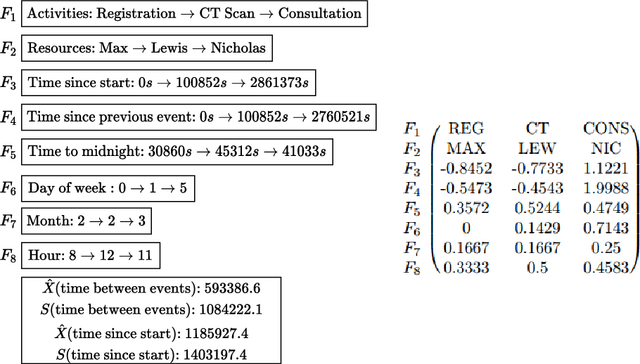
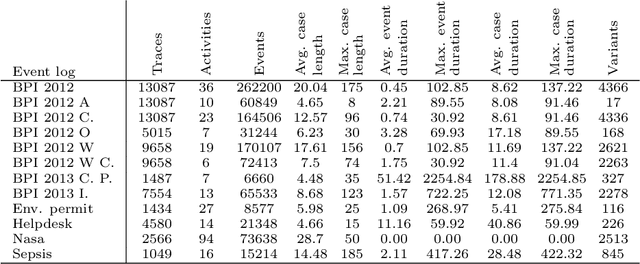
Abstract:Predictive monitoring is a subfield of process mining that aims to predict how a running case will unfold in the future. One of its main challenges is forecasting the sequence of activities that will occur from a given point in time -- suffix prediction -- . Most approaches to the suffix prediction problem learn to predict the suffix by learning how to predict the next activity only, not learning from the whole suffix during the training phase. This paper proposes a novel architecture based on an encoder-decoder model with an attention mechanism that decouples the representation learning of the prefixes from the inference phase, predicting only the activities of the suffix. During the inference phase, this architecture is extended with a heuristic search algorithm that improves the selection of the activity for each index of the suffix. Our approach has been tested using 12 public event logs against 6 different state-of-the-art proposals, showing that it significantly outperforms these proposals.
Embedding Graph Convolutional Networks in Recurrent Neural Networks for Predictive Monitoring
Dec 23, 2021

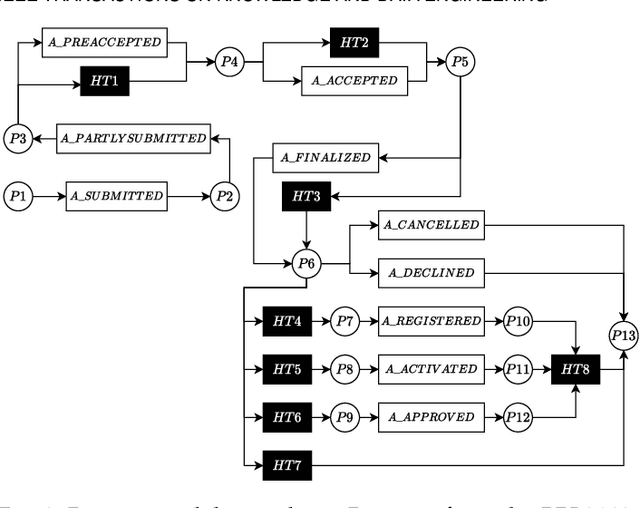

Abstract:Predictive monitoring of business processes is a subfield of process mining that aims to predict, among other things, the characteristics of the next event or the sequence of next events. Although multiple approaches based on deep learning have been proposed, mainly recurrent neural networks and convolutional neural networks, none of them really exploit the structural information available in process models. This paper proposes an approach based on graph convolutional networks and recurrent neural networks that uses information directly from the process model. An experimental evaluation on real-life event logs shows that our approach is more consistent and outperforms the current state-of-the-art approaches.
Deep Learning for Predictive Business Process Monitoring: Review and Benchmark
Sep 24, 2020Abstract:Predictive monitoring of business processes is concerned with the prediction of ongoing cases on a business process. Lately, the popularity of deep learning techniques has propitiated an ever-growing set of approaches focused on predictive monitoring based on these techniques. However, the high disparity of process logs and experimental setups used to evaluate these approaches makes it especially difficult to make a fair comparison. Furthermore, it also difficults the selection of the most suitable approach to solve a specific problem. In this paper, we provide both a systematic literature review of approaches that use deep learning to tackle the predictive monitoring tasks. In addition, we performed an exhaustive experimental evaluation of 10 different approaches over 12 publicly available process logs.
 Add to Chrome
Add to Chrome Add to Firefox
Add to Firefox Add to Edge
Add to Edge